Crimean journalist Oleksandr Yankovskyi, who heads and is the editor and presenter of Teleproekt and Radio Krym.Realii, author, and presenter of the radio program The Crimean Issue; and Olena Badiuk, the editor of Radio Krym.Realii published an investigation by Reporters Without Borders within the Novyny Pryazoviya project. Thanks to the investigation, it was found out that the media in the occupied territories of Ukraine in the Zaporizhzhia and the Kherson Regions is controlled by a person close to the head of the Wagner private military company, Yevhen Prigozhin.
At the end of April, Reporters Without Borders published an investigation by Propaganda Malkevicha. Wagner’s partner network in Ukraine. It says that the Russian journalist, general director of the St. Petersburg TV channel Oleksandr Malkevich, who is a close associate of Yevhen Prigozhin, took control of television and radio broadcasting in the occupied territories of southern Ukraine in July 2022.
According to journalists, the projects of local TV channels, developed by the occupation administrations after Russia’s full-scale invasion of Ukraine, were suddenly canceled at the end of February in favor of a new system centered around three media. In particular, in Melitopol, Malkevich created the ZaMedia group comprising a TV channel, a radio station, and several local newsrooms. In occupied Kherson, he launched the TV channel Tavria TV. In Mariupol, to support his media called Mariupol 24, Malkevich used the resources of the St. Petersburg TV channel he managed.
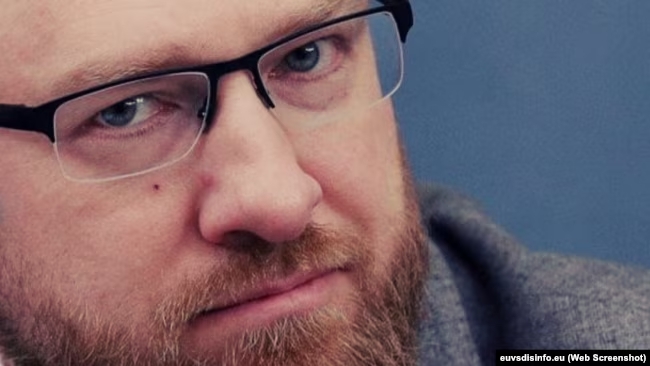
Journalists noted that the task of these new media is to force the local population to accept the Kremlin’s vision of the world and the integration of the occupied territories into Russia, which, according to Malkevich, is a significant challenge.
The author of the investigation, a journalist of the Reporters Without Borders organization, Marianna Perebenesiuk, on April 21 on the Espresso TV channel, noted that the creation of propaganda media in the occupied territories is part of Russia’s crimes against Ukraine. The investigation also states that the propaganda system created by Malkevich in the occupied territories of southern Ukraine is part of Prigozhin’s strategy to increase his media influence in Russia. According to the journalists, the second direction of this propaganda is aimed at destroying information about Ukrainian history.
Last fall, Malkevich denied his involvement in the private military company Wagner and even sued journalists who uncovered the connection.
According to Reporters Without Borders, Malkevich is under U.S. sanctions because of his ties to Yevgeny Prigozhin and his significant resources.
Journalists of the Krym.Realii website report that Serhii Danilov, a deputy director of the Center for Middle Eastern Studies, noted that television in the occupied territories feels relatively weak. However, much attention is paid to the work of Telegram channels.
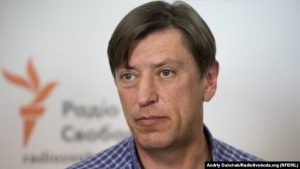
“Kherson TV channel VTV+ has moved, trying to say something further. All this looks much weaker than last summer. The same is the case with the Melitopol TRC, which the occupation authorities created with the help of Crimean henchmen who were still working in the Ukrainian media. Telegram channels continue to work; they were created last year in the so-called military-civilian administrations. They copied this administrative apparatus from the Ukrainian law on military-civilian administrations,” said Danilov. He believes that after the liberation of the right bank of the Kherson Region, the effectiveness of Russian propaganda decreased. Stories about the alleged shelling of populated areas by the Ukrainian military occupy a significant part of it. How Ukraine supposedly destroys infrastructure and terrorizes the civilian population. They are emphasizing this now. At most, 10 to 20% of the population starts to believe or doubt. The second message was that Russia is invincible, strong, and Ukraine is weak. Their task was to convince that Ukrainians were apparently incapable of anything. Sow doubts or despair, the expert explained.
According to Danilov, the Russian media in the occupied territories of Ukraine’s south now emphasize historical events related to this region. A lot of material was devoted to the fact that Russia and Ukraine are supposedly one nation.
“Now more about glorious ancestors, about May 9, about fascism, about victory in the Second World War… Most of the time is taken up by coverage of youth politics. These can be contests, competitions, trips to the regions of Russia – Anapa, Krasnodar, Moscow – or to the annexed Crimea. Participation in some events there, formation of youth paramilitary organizations or those tied to certain Russian political forces,” Danilov explained.
A Center for Middle Eastern Studies representative claims that media workers receive considerable resources for such work. In general, the policy regarding the Kherson and Zaporizhzhia Regions is to flood them with money. The expert said that salaries are paid higher than in Crimea and regions of Russia to everyone who went to work, especially journalists and people who run Telegram channels. Danilov added that the signal of the pro-Russian TV channel Tavria was available in the liberated part of the Kherson Region until recently. However, due to hostilities, the operation of the transmitters is currently unstable.
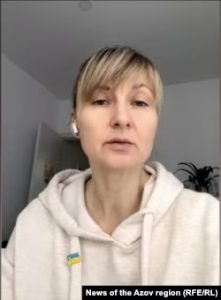
Natalia Vyhovska, a representative of the Institute of Mass Information (IMI) in the Zaporizhzhia Region, told Novyny Pryazoviya that, in addition to telegram channels, print media are also being developed in the occupied part of Ukraine. Currently, it is being implemented very actively. For example, Komsomolskaya Pravda has a special edition of Zaporizhzhia. They print more than 500,000-600,000 copies in Crimea. And they come out every week. The journalist said the Zaporozhskyi Vestnyk newspaper is also published with a circulation of 50,000 copies. According to her, a separate source of anti-Ukrainian narratives is the telegram channels of representatives of the occupation authorities, who publish posts, and the decisions of the authorities of the Russian Federation.
Some telegram channels like Volodymyr Rohov’s [representative of the occupation authorities of the captured part of the Zaporizhzhia Region – ed.] have more than 100,000 subscribers. He constantly conducts purely anti-Ukrainian activities, openly leaks videos from where rockets were hit, and constantly calls everyone there Nazis, drug addicts, Vyhovska stressed.
“In the newspapers that the Russian occupying forces distribute in the region, there are no mentions of the war at all, Vyhovska noted. There is a lot of Putin there, and everything else is about the wonderful actions of the Russian occupiers, who simply help the new territories live. That is, such an absolute separation from reality,” emphasized the representative of IMI. “Documentaries shown during the occupation are also full of pro-Russian narratives. Recently, I analyzed a movie with Ivan Okhlobystin; it was released eight months ago and was called Govorit Rossiya [Russia Talks]. Zaporizhzhia Oblast. This was the top of something surreal and distorted, manipulations and fakes. Documentaries are also put to the service of propaganda. Unfortunately, I think that all this somehow affects the people who stay there.”
Leonid Vlasyuk, a Russian political scientist who lives in Israel and a former analyst of the United Russia party, noted in a comment to Novyny Pryazoviya that the mass media in the occupied territories is one of the main tools for maintaining control over these territories.
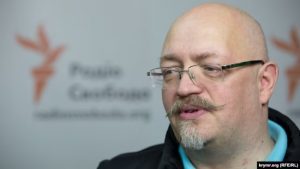
Fascists did the same when they opened their own radio stations, newspapers, leaflets, and everything else that was distributed among the population. Film cameras traveled there, showing films for prisoners is one thing, and for Germany, for domestic consumption is another. Therefore, it is a completely natural story; it would be strange if it did not happen. The only surprising thing is why the presidential administration (Putin – ed.) did not deal with this but delegated all these stories to Prigozhin, Vlasyuk emphasized.
“And Prigozhin entrusted the organization of media work in the occupied territories to Malkevich because he considers him a professional. He found an unprincipled person with a high level of intelligence, charismatic, and able to organize this work. He hired him for a fairly large amount of money, providing the maximum number of opportunities and delegating the maximum number of powers in this area,” Vlasyuk said.
The fact that the media in the occupation are under the control of the head of Wagner and not the deputy head of the administration of the President of Russia, Sergey Kiriyenko, shows the inconsistency in the management of the occupied territories, the political scientist believes.
Sergey Kiriyenko should deal with this; this is his area of responsibility; he is quite talented, but, considering everything, the management is broken. The country (Russia – ed.) is gradually coming to destruction, and disintegration, because there is no longer either tactical or strategic management. Accordingly, there are no strategic and tactical plans, Vlasyuk emphasized. He believes that Russian propaganda is ineffective and does not achieve its goal. According to the expert, the Ukrainian information field works much better.
Ukraine does not give up; it is becoming more united every day and more effective in its actions. And this indicates that propaganda (Russian – ed.) is not achieving its success. Hence Prigozhin’s tantrums, the capture of Russians, and the uneducated mobs (mobilized persons in Russia – ed.). When a country collapses, as it is now, degradation occurs at all levels. It’s bad everywhere, Vlasyuk emphasized.
As earlier reported, the NUJU has repeatedly emphasized the responsibility of Russian propagandists on a par with war criminals, who violate the norms and rules of warfare, and are facilitators and instigators of Russia’s war crimes in the war in Ukraine. The issue has been brought to the level of international negotiations, and a decision will be made on it together with the issue of Russia’s responsibility for war crimes.
NUJU Information Service

 THE NATIONAL UNION OF
JOURNALISTS OF UKRAINE
THE NATIONAL UNION OF
JOURNALISTS OF UKRAINE

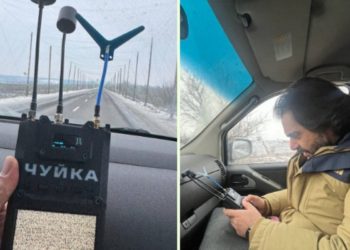
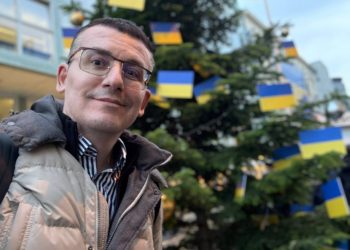













Discussion about this post